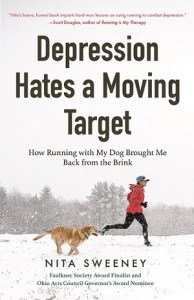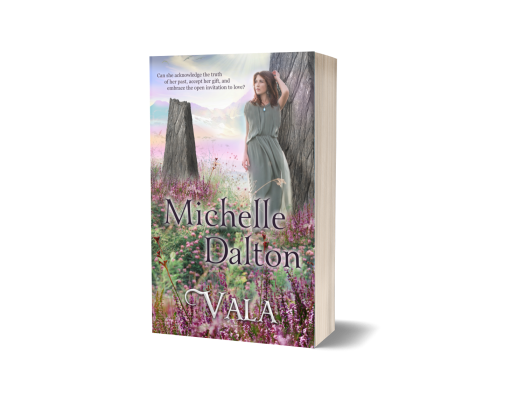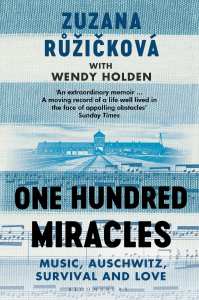
10 Breadcrumbs to Sunken Madley
How does a writer get from illiteracy to writing a cozy paranormal mystery series set in the quaint English village of Sunken Madley?
1. The Trail Begins Here
We are all born illiterate. So before I could read, I was read to, mostly by my brother, some years older than I and the best of siblings. He must have shared his love of the written word with me from my infancy, because I can’t remember a time before he did just that. He would mark the words with his finger as he read. The letters were mystical symbols to me that somehow had the power to grant expression of the story to the one who had the skill. The book I loved the most and asked for again and again was The Lion, The Witch and The Wardrobe by CS Lewis, first of the Narnia books.
This fired my imagination like no other story. Treasure Island, fairy tales, Robinson Crusoe and the rest, were all set in the past or in a far off land or make-believe. But the Pevensie children existed in both the reality of the present and a fantastical world of magic. Away from the novel, in my mind, I was off on expeditions through the wardrobe that were all my own. I began reinterpreting the stories, changing and what-if-ing the plot. The characters became part of my imaginary world.
2. A Reader
I started school at four. While at what was styled ‘Infants School, I learned to begin deciphering the magic runes. Not that I learned at school. In fact, during the 11 or so years of compulsory education, I recall acquiring only one fact: the difference between U-shaped and V-shaped valleys, which information has, naturally, stood me in good stead.
One day, our terrifying form teacher began reading to us, his hapless class. As he was refraining from bellowing, hurling objects or striking students, we naturally regarded this as a good thing and listened quietly and attentively. The book was a slow starter, but it had a new word in it, a new species and I was enchanted.

(Hobbit House in New Zealand)
JRR Tolkien had entered my life, for good, with The Hobbit. Rather than wait for the laborious read-aloud when my preceptor felt like delivering it to us, I acquired a copy, and the slow start gathered speed. I learned to read the runes on his map and came to know Bilbo’s route by heart. For the length of the story, I took up residence in The Shire and journeyed through perilous lands to the book’s glorious ending.
3. I Discover Treasure
At home, one thing there was a-plenty: books. Among some battered paperbacks, I found the mystery genre: Agatha Christie, with the title that was to become Ten Little Indians or And Then There Were None. The ingenious plot assembles a party of strangers onto a remote English island, where one after another is found murdered. I was fascinated and soon was seeking the shelves at home, the library and the bookshop for more and more Christie. I feasted, and over the years repeatedly returned to the table for the banquet. What I did not know was that I had met the writer who would one day be hailed as the queen, the godmother, of a new genre: cozy mystery.

(Agatha Christie)
4. Golden Heyer
I began a new school where, at the age of 11, the girl I sat next to gave me a priceless gift. She introduced me to works of the historical novelist Georgette Heyer. A romance writer? You may say with surprise. Yes, because here was a new rich seam of literary delight with Jane Austen-style wit. Book after book in her canon filled my shelves, my mind and heart. I even discovered mysteries among her Regency tales in Cousin Kate and The Toll Gate.
5. Alastair
About this time, my brother showed me one of the action thrillers of Alastair MacClean. Spellbound, I began reading book after book. However, it was the eerie Puppet on a Chain that became my favourite to such an extent that I studied the Netherlands and began learning Dutch.
6. The Return of the King
It was time. The moment had come to unite me with what was to become my all-time favourite book: The Lord of the Rings. Of course, thanks to my brother. We read it at the same time, working our way through the three volumes, picking up a book when the other was busy. For the days it took us to read from first volume cover to third volume close, we talked and thought of little else. JRR Tolkien’s world of Middle Earth was more real to me than reality.

(Lord of the Rings – The One Ring)
7. Medieval Mystery
I can’t recall exactly who told me about them, but it was definitely a good fairy in human guise: The Cadfael novels, set in the twelfth century and beginning with A Morbid Taste for Bones, by Ellis Peters. The writing impressed me in particular because Peters has her monk sleuth solve crimes with only the aid of such technology that was available at the time. On the library shelf next to Ellis was a book by Elizabeth Peters that accidentally checked out one day. A whole new series, this time of archaeological whodunits was now at my fingertips.
8. Sir Terry

(Terry Pratchett)
Knowing I liked science fiction and mysteries, one day, my brother asked me if I’d heard of the Discworld. No. The what? It sounded rather weird at first, but this was my brother recommending it after all. And so, I read The Light Fantastic. I wanted more mystery and shenanigans in the peculiar flat earth of Sir Terry Pratchett’s imaginings. (Photo by Luigi Novi) Eventually, I had read the back catalogue and longed for the moment when the next novel was released.
The book above all that books that captured my heart was the third in the ‘Witches’ series. Witches Abroad is a road movie of a tale as Granny Weatherwax makes her way through foreign fairytale-gone-wrong parts. These of the Witches series were the stories that were to have an influence on my own yet-to-be-created magical world.
Meanwhile, I became curious about actual witches, I read about witchcraft, and later met two ghostbusters. I heard about experiences with the supernatural. I concluded witchcraft was rather a lot of work.
9. Racing Riddles
I suspect that all avid readers are also avid inspectors of other people’s bookshelves, searching for new and wondrous literary treasures. And thus, with Nerve, I think, I discovered a new pleasure. Dick Francis’ murder mysteries are set in the world of horse racing. This was not a sphere of which I had no experience. However, it was his ability to write in first person of such a diverse variety of characters that struck me. I marvelled at how Francis handled romance and intimacy with such deftness, and the cleverness of his plots.
10. The Unhappy Medium and the Happy Outcome
And then … I began to write …. non-fiction, marketing. I wrote more and more of that until I had somehow convinced myself that I was a strictly non-fiction author incapable of penning fiction. A friend kept telling me I could do it, but it was unimaginable. And then … two novels came into my experience that were to change my life.
I met the now bestselling author of The Unhappy Medium, TJ Brown. We made contact as fellow writers and quickly established a rapport. Interested in what he had penned, I read his first and, at the time, only novel. I was captivated. It had all of the components I enjoyed the most. I was bowled over by the ingenious juxtaposition of suspense and hilarity, either holding my breath or giggling helplessly.

That was the first novel. But the second was the clincher: The Unhappy Medium II: Tom Fool. Tim was writing the next in the series and, as I’d done copious amounts of editing, he asked me to top edit it for him. It was the ride of a lifetime. I went through the edits with him on the phone, frequently suffused with laughter, fascinated by the devices he was using to tell his story. I noticed the emotional terrain, and what worked and what needed tweaking. What a learning experience it was!
Tim’s judgment was: if you can do this, you can write your own novel. I was still not a believer. Then one day, on a couple of pages of a large stretch book, in a pub, Tim revealed to me the secret of plotting a novel. He made it look so easy that I believed it was.
Then came The Call. One afternoon, in November 2017. Tim had been told by a fellow author of a new genre. As soon as he heard the news, he was convinced that I could write for it: cozy mystery, and an even better fit: cozy paranormal mystery.
Soon Tim helped to plot out my first novel in the genre: Amanda Cadabra and The Hidey-Hole Truth. I wrote the first draft in three weeks. Tim mentored me through the editing process, created the cover and the logo, and helped me conjure a map of the village. Before I knew it, it was published. Even before then, book 2 was forming in my imagination, that spawned book 3, and later 4, then the most recent, book 5, Amanda Cadabra and The Hidden Depths.
Amanda Cadabra’s homicidal witch-clan goes over a Cornish cliff when she is three. This creates what, many years later, becomes the cold case that is the story arc running thought the series. That arc comes to its finale and climax in this, the book I have just written: Amanda Cadabra and The Hidden Depths.
And so the trail has led me home. I love, I adore, creating cozy paranormal mysteries. Nevertheless, since I’ve started writing fiction, reading anything that’s not for research has rather gone by the board. One day I’ll get back to it, but for now, I have a new trail to follow. I can’t wait to see where it takes me … and my readers.
The moral of the story? ‘I could never be a writer,’ you say? The book you’re reading today could be part of your trail of breadcrumbs to the novel that, right now, you’re convinced you could never write. Never say never.
Thank you again, Camilla.

It was wonderful to have you on Friday with Friends, Holly! I very much enjoyed following the trail of bread crumbs to Sunken Madley.
I had the same reaction the first time I read Agatha Christie. I was hooked. I read every single book she had written (may be missing one or two of the rare books), and ended with reading her autobiography.
Deeply grateful to you for this inspiring post. Wishing you all the best, always! – Camilla
To see Holly’s interview previously posted, go here:
Meet the Author: Amanda Cadabra by Holly Bell
Biography
Holly Bell is a cat and chocolate lover who lives in London and began publishing novels less than two years ago. After writing reams of non-fiction over the years, a fellow author convinced her she could write fiction. Photography and videography are also things Holly does and has done professionally and for pleasure.
Rainbows, butterflies and honeybees seem magically to show up whenever she’s outside. Holly firmly believes that we are all born storytellers and anyone can write a book, however small.
Connect with Holly:
Website: https://amandacadabra.com/
Facebook: https://www.facebook.com/hbamandacadabra/
Twitter @holly_b_author
Pinterest: hollybell2760
Instagram: @ hollybellac
**************************************************************************
Here are a few suggestions on how to further support this author:
- Comment on this post
- Share the post using the social media buttons
- Click through to learn more about the author and their book(s)
- If interested, buy the book and leave a review
To support this website and the author’s interviewed, visit Support MTA for suggestions. Thank you! – Camilla, Founder and Host




































